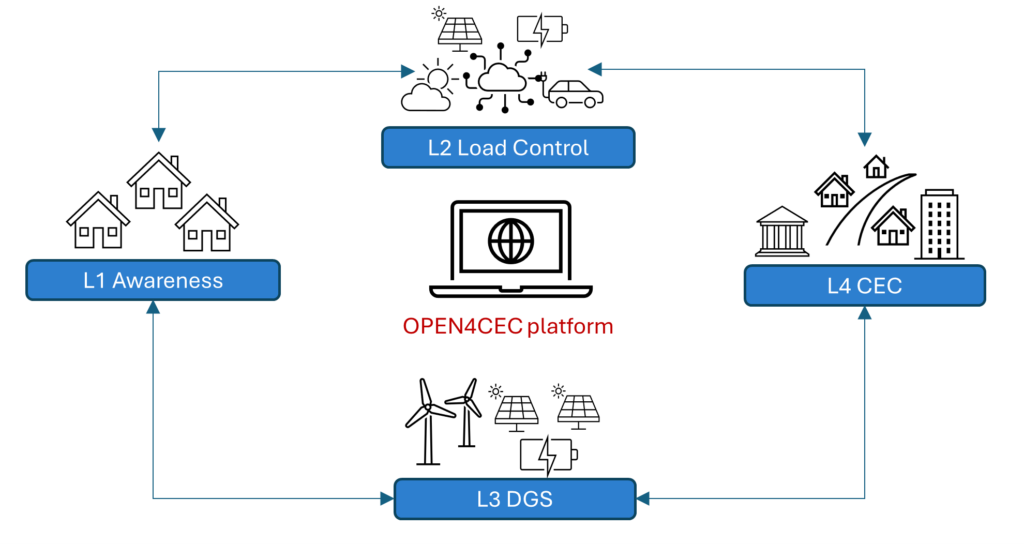Summary results achieved in 2024
Proposal and Modeling of the MRA Architecture
We focused on analyzing and defining the Microservices Reference Architecture (MRA), identifying relevant regulatory and legislative requirements for developing a digital platform dedicated to Citizen Energy Communities (CECs). This included a comparative analysis of strategies applied in various European countries such as Denmark, Germany, the United Kingdom, and Romania to understand the challenges and legislative solutions supporting CECs. The study highlighted the need to modernize electrical grids and adopt ICT solutions to integrate prosumers and manage energy flows. It also addressed business models, consumer behaviors, and incentives necessary to encourage the transition to CECs. The results provided a solid foundation for developing a multi-level platform capable of meeting the technical, social, and economic requirements of CECs.

Proposal of Microservices for Level L1: Awareness, Acceptance & Adoption
We focused on designing and modeling specific microservices for Level L1 of the proposed architecture, aiming to increase awareness, acceptance, and adoption of CECs by consumers. The developed microservices include tools for simulating consumer behaviors, using gamification to motivate active participation, and implementing incentives such as Demand Side Management (DSM) and Demand Response (DR). Within this activity, models were also proposed for evaluating Romania’s residential photovoltaic potential and scenarios for community transitions, ranging from renewable energy usage to the integration of electric heating and mobility. The OPEN4CEC platform, developed as a result of these activities, integrates these microservices into a scalable, adaptable, and secure framework capable of supporting both individual users and energy communities in their transition toward sustainability.